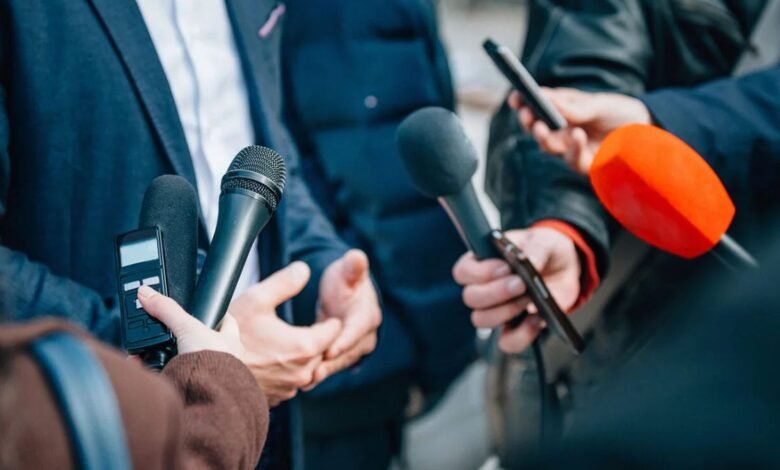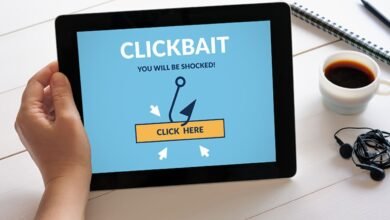How to Navigate News Bias and Stay Informed

In today’s fast-paced digital age, staying informed about current events is more important than ever. However, with the proliferation of news sources, distinguishing between factual reporting and biased information can be quite challenging. News bias not only distorts public perception but also influences personal beliefs and societal discourse. Understanding how to navigate news bias is essential for cultivating an informed perspective on the world. This article explores effective strategies to identify bias in news reporting, the impact of social media, and practical steps to ensure a well-rounded understanding of current events.
Understanding News Bias
News bias refers to the inclination of media outlets to present information in a way that favors a particular perspective, ideology, or agenda. This can manifest in various forms, including the selection of stories covered, the framing of issues, the use of language, and even the omission of crucial information. Different media outlets often cater to specific political affiliations or demographic groups, which can result in skewed portrayals of events. For instance, one outlet might emphasize a positive development concerning a political party, while another highlights a negative incident related to the same party. Recognizing these biases is the first step in navigating the complex landscape of news.
The Role of Language and Framing
The language used in news reports plays a significant role in shaping public perception. Certain words can evoke emotional responses or create a sense of urgency, thereby influencing how readers interpret the information. For example, using terms like “crisis” or “disaster” can elicit fear and urgency, while more neutral terms might present the same situation as a manageable challenge. Additionally, the framing of a story—how it is presented and what aspects are emphasized—can lead to different interpretations. For instance, a news article about a protest might focus on the peaceful intentions of the demonstrators in one outlet while another might highlight incidents of violence, creating drastically different narratives.
Identifying Bias in News Sources
To navigate news bias effectively, it is essential to assess the reliability of news sources. Some outlets are known for their commitment to journalistic standards, while others may prioritize sensationalism or partisan viewpoints. Several organizations, such as Media Bias/Fact Check and Ad Fontes Media, provide comprehensive analyses of various news outlets, categorizing them based on their political leanings and credibility. Regularly consulting these resources can help readers identify potentially biased sources and choose more reliable alternatives. Additionally, cross-referencing news stories from multiple outlets can provide a more balanced perspective on any given issue.
The Impact of Social Media
Social media has transformed the way we consume news, providing both advantages and challenges. Platforms like Twitter, Facebook, and Instagram allow for rapid dissemination of information and enable users to engage with diverse perspectives. However, the algorithms that govern social media feeds often prioritize content that resonates with users’ existing beliefs, creating echo chambers that reinforce biases. This can lead to a distorted understanding of events, as individuals may only be exposed to information that aligns with their viewpoints.
The Importance of Diverse Perspectives
To counteract the effects of echo chambers, it is vital to seek out diverse perspectives. Engaging with news from various political affiliations, cultural backgrounds, and geographic locations can enrich one’s understanding of complex issues. For instance, following international news sources can provide insights that domestic outlets may overlook, particularly on global issues like climate change or international relations. By broadening the range of sources consumed, individuals can better appreciate the nuances of different viewpoints and make more informed judgments.
Strategies for Staying Informed
Navigating news bias and staying informed requires intentional effort and critical thinking. Below are several strategies to help individuals cultivate a well-rounded understanding of current events.
1. Diversify Your News Sources
As mentioned earlier, consuming news from a variety of sources is crucial for gaining a comprehensive view of events. Aim to include sources that represent different political perspectives and journalistic styles. This can involve reading newspapers with contrasting editorial slants, following independent journalists, and exploring international news outlets. Additionally, consider podcasts and documentaries that delve into complex issues, as these formats often provide in-depth analysis that written articles may not cover.
2. Fact-Check Information
Before accepting information as true, it is wise to fact-check claims. Numerous fact-checking organizations, such as Snopes, FactCheck.org, and PolitiFact, verify the accuracy of public statements, news reports, and viral content. By utilizing these resources, readers can identify misinformation and avoid spreading false narratives. Moreover, fact-checking encourages a culture of accountability among news providers, prompting them to uphold journalistic standards.
3. Engage in Critical Thinking
Critical thinking is an essential skill for navigating news bias. This involves questioning the sources of information, considering potential motives behind reporting, and evaluating the evidence presented. When encountering a news article, ask yourself: Who authored this piece? What is their background? What information is included, and what might be omitted? By approaching news stories with a critical mindset, individuals can better discern biases and identify reliable information.
4. Participate in Discussions
Engaging in discussions about current events with others can provide new insights and challenge preconceived notions. Whether through community forums, social media groups, or casual conversations, discussing news with individuals who hold different perspectives can enhance understanding. It is important to approach these discussions with an open mind, willing to listen and learn from others, rather than merely defending one’s own viewpoints.
5. Practice Media Literacy
Media literacy involves understanding how media works and recognizing the ways in which it can shape perceptions and opinions. Educational resources that focus on media literacy can empower individuals to critically analyze news content, understand the role of advertising, and recognize propaganda techniques. Schools, libraries, and community organizations often provide workshops and resources aimed at improving media literacy skills, making this an essential area for individuals to explore.
The Future of News Consumption
As technology continues to evolve, so too will the landscape of news consumption. Emerging platforms and innovations in artificial intelligence may change how news is delivered and consumed. While these advancements hold promise for greater accessibility and personalization, they also pose challenges in terms of maintaining journalistic integrity and combating misinformation. Therefore, it is crucial for consumers to remain vigilant and proactive in navigating news bias.
Embracing Ethical Journalism
Supporting ethical journalism is vital for ensuring that news remains a trusted resource. Consumers can actively seek out outlets that prioritize transparency, accountability, and fact-based reporting. By subscribing to reputable publications, attending local journalism events, and advocating for policies that promote press freedom, individuals contribute to a media environment that values integrity.
Conclusion
In an era characterized by information overload and widespread bias, the responsibility to navigate news effectively lies with each of us. By recognizing the presence of bias, diversifying news sources, engaging in critical thinking, and supporting ethical journalism, individuals can cultivate a well-rounded understanding of current events. Staying informed requires effort and intentionality, but the rewards—a more nuanced perspective on the world and a deeper understanding of the complexities of societal issues—are well worth it. In this way, we can all contribute to a more informed and engaged society.



